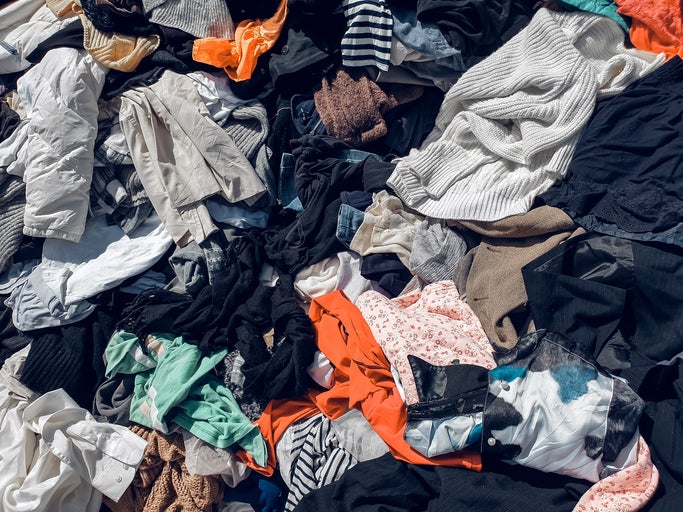
The pursuit of “material wealth” has a complex relationship with overconsumption, especially clothing. And we live in a society where consumers are highly influenced by societal pressure and advertising; where the idea of having everything irrespective of need has led to a wasteful consumption culture.
I understand overconsumption through the vicious loop set up by the fast fashion industry. The rapid production of cheap clothing that is advertised as seasonal ranges and must-haves by brands encourages people to get their hands on everything. This idea of staying “in-trend” leads to mindless consumption of clothing.
But consumers can’t be blamed alone since overproduction is as much a part of the problem.
It doesn’t come as a surprise that the fashion industry is one of the most polluting, with over 100 billion garments produced each year and 92 million tonnes ending up in landfills based on the data shared by earth.org.
The Fashion Transparency Index 2023 explains that mitigating fashion waste remains the elephant in the room with a 3% increase in fashion brands not disclosing their annual production volumes (88% in 2023 compared to 85% in 2022).
The crux, though, is that both overproduction and overconsumption lead to heaps of waste being generated. The excess inventory often finds its way to landfills, is incinerated or finds its way to countries like Uganda which serves as a second-hand clothing market.
At the other end of the spectrum, some retailers and companies are putting in efforts to curb this wasteful production. For instance, wood-based speciality fibre company Lenzing Group adds up to 20% recycled raw material content from post-consumer textile waste to its Ecovera branded viscose fibres.
Industry veterans are also debating whether artificial intelligence (AI) can solve fashion’s overproduction problem and be a key money-making opportunity for both fashion brands and manufacturers.
Ganesh Subramanian, CEO of fashion software company Stylumia suggests a radical solution to overconsumption. Subramanian argues that in the world as we know it today, the only way to solve the supply and demand gap is to improve the forecasting of what consumers will or won’t buy.
But the question is, can technology really end the wasteful culture that we “humans” have either unknowingly or knowingly accepted and continue to market?
Top news stories on Just Style last week
Signal: Uganda’s second-hand clothing import ban dresses up complex issue
While textile manufacturing may benefit, jobs will be lost elsewhere, with trade relationships also a concern.
Signal: Shein-SPARC deal may be the start of acquisitions for rapid US expansion
Shein is winning the hearts of consumers across the US at a colossal pace, much to the ire of a Washington determined to distance itself from Beijing. The latest partnership between the ultra fast-fashion retailer and Forever 21 shows it has no plans of slowing down.
Bestseller joins Maersk on its journey to lower carbon emissions
Four containers from Bestseller are on the maiden voyage of Maersk Eco Delivery, the first-methanol-powered container vessel, with the brand saying initiatives such as these are helping drive forward its circular ambition.
‘Soaring popularity of Shein’ fuels 3.8% growth in global value apparel market
Fast fashion giant Shein is now the market leader, although growth in the sector is expected to slow in 2023 as consumers cut back on spending.
Global apparel sector splurges on $2.5bn M&A deals in Q2 2023
A report by GlobalData suggests the value of apparel merger and acquisition (M&A) deals increased 20% to $2.5bn in Q2 2023 compared to Q1.
Lululemon reports strong ‘power pose’ Q2 as strategies pay off
Canadian athleisure apparel retailer Lululemon Athletica’s strong Q2 2023 results are attributed to “a well-run business, clear strategy, and excellent execution,” explains an industry expert.
Lenzing boosts viscose fibre circularity with traceable textile waste solution
Wood-based speciality fibre company Lenzing Group adds up to 20% recycled raw material content from post-consumer textile waste to its Ecovera branded viscose fibres to meet growing demand for circular textile innovations.
Beyond the hype: Can AI really stop fashion brands overproducing clothes?
In an exclusive interview with the CEO of fashion software company Stylumia, Just Style uncovers whether artificial intelligence (AI) can solve fashion’s overproduction problem and be a key money-making opportunity for both fashion brands and manufacturers.



